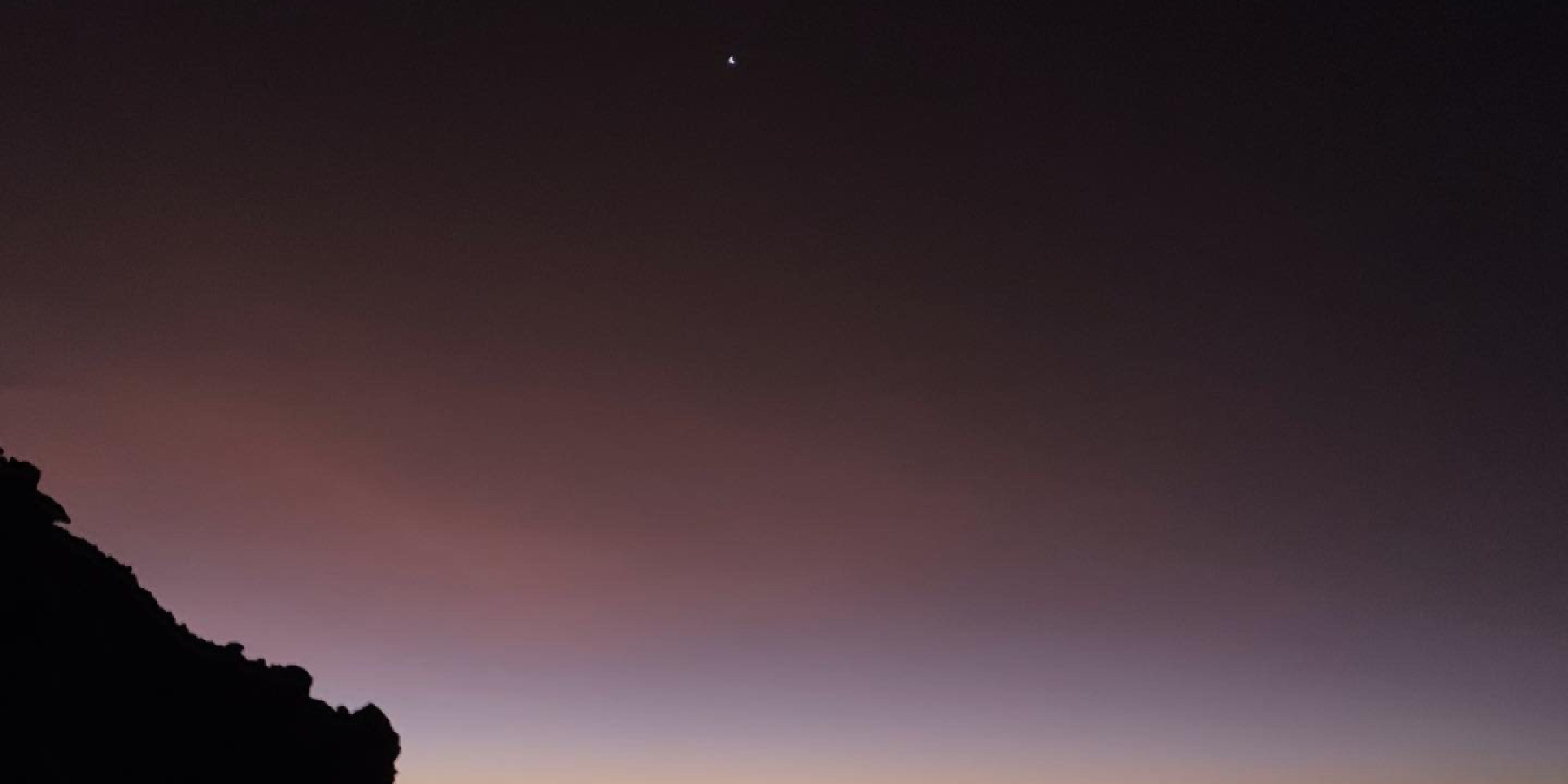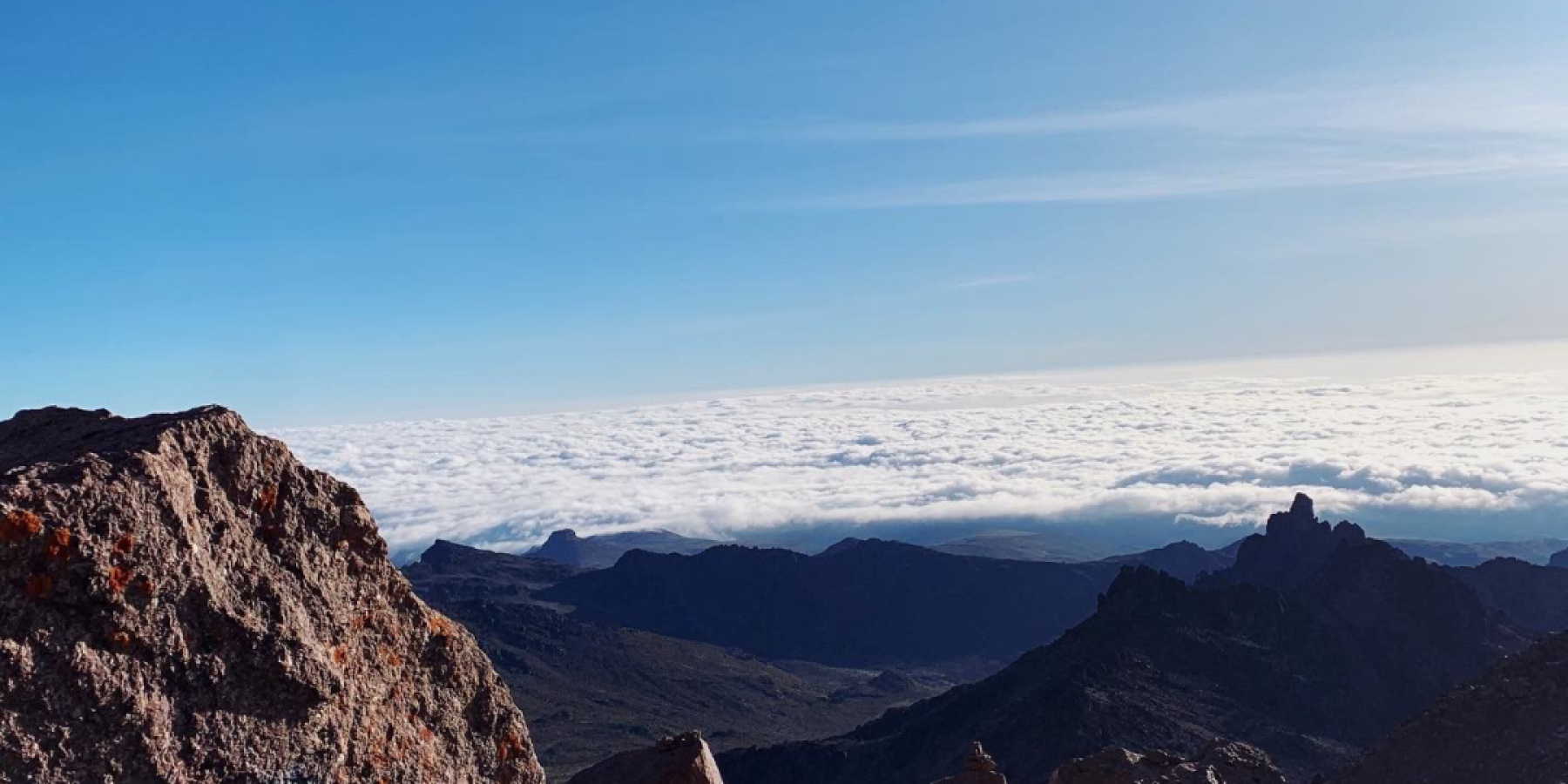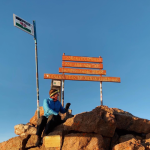Support
Growing up, I spent most of my summers hiking throughout New England; Mt.
Washington, Mt. Katahdin, and backpacking the last 200 miles of the Appalachian Trail. It was
my interest in hiking that initially led to my interest in pursuing a grant abroad in Kenya. With
the help of the CIIS Travel Enrichment Grant, I was able to stay in Kenya for an additional week
to trek to Lenena Point of Mt. Kenya, the only peak accessible without technical climbing. At
4,985m of elevation, Lenana Point of Mt. Kenya is the third-highest peak in all of Kenya. Over
the course of five days, I hiked via the Naro-Moru-Chogoria route, spending around 6-10 hours
hiking each day. For the first few days of hiking, I followed the small streams, noticing the little
water running through and plants that were once green now shades of brown. On the third day I
reached the Lewis Glacier, just below the Lenana Point Summit. I was able to see the Lewis
Glacier, the only glacier in Kenya, and one of the three glaciers left in the continent of Africa,
which has lost over 90% of its mass since 1935. It was significantly smaller than any of the
photo references I had seen earlier. I watched as the glacier slowly melted into pools and
streams, forming paths down the mountain. The next day, I summited Lenana Point at sunrise,
watching the breath-taking view next to the summit sign. After summiting, I began the hike
down to the last campsite, seeing sections of the national park completely cleared and deforested.
My experiences hiking Mt. Kenya was incredibly eye-opening and allowed me to better grasp
the harsh realities of climate change in Kenya. From my experiences and time hiking, I was able
to further develop my understanding of political actions being taken and the cultural
repercussions of climate change.
Through this grant I was able to develop my knowledge of environmental protection
policies in Kenya while having the incredible opportunity to summit the second-tallest mountain
in Africa. My grant, titled “Glaciers and Environmental Guidelines: Exploring the Cultural
Repercussions of Climate Change Policies of Mt. Kenya” allowed me to see and gain insight on
Kenya’s current environmental concerns. In multiple interviews and conversations with guides as
well as national park rangers, I was able to better understand the issues concerning the mountain,
its surrounding national park, and how local communities are affected as a result. Deforestation
and climate change were and continue to be the two main threats to Mt. Kenya national park.
Without the glaciers, there are very few streams or rivers and with over a fifth of the national
park being deforested, surrounding communities are losing natural resources needed for survival.
Due to climate change, many surrounding communities made up of herders and farmers are now
turning against one another, forcing migration of some groups and violence against others. The
evident cultural and social repercussions of the climate change crisis at Mt. Kenya allowed me to
analyze the enacted policies’ effectiveness.
Learning about the policies enacted to protect the glacier, such as the Mt. Kenya
Ecosystem Management Plan and the Climate Change Act of 2016, I was able to see first-hand
how the policies had been applied to the land, and how communities have reacted. While many
of the policies address very broad recommendations to protect Mt. Kenya, the glacier and forest
are still continuing to dwindle today.
While challenging at times to process the dwindling of Mt. Kenya National Park, I am
very grateful for the opportunity to travel and conduct research. I hope to continue traveling and
studying environmental policies in the future.


